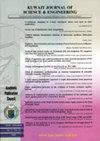四氧嘧啶诱导糖尿病的不稳定性及其对雄性wistar大鼠性别和甲状腺激素的影响——一项初步研究
引用次数: 2
摘要
糖尿病与性别和/或甲状腺激素之间的关系已经在人类和动物研究中得到了很好的证明,四氧嘧啶的自动可逆性也是如此。然而,不稳定型糖尿病和这些激素之间的相关性在文献中很少或没有信息;因此,本研究的重点。用新鲜制备的四氧嘧啶单次腹腔注射150 mg/kg诱导糖尿病。本研究选用成年雄性Wistar大鼠25只,体重120 ~ 150 g。大鼠20只,对照组5只。四氧嘧啶给药大鼠进一步分为两组。一组(糖尿病大鼠)作为糖尿病对照组,另一组作为糖尿病逆转组,其中包括糖尿病后空腹血糖正常的大鼠。所有大鼠均饲喂正常饲料和随意饮水,监测14 d。在基础(糖尿病诱导前)和第1天(糖尿病确诊)值记录后每隔7天监测一次血糖。性激素:黄体生成素(LH)、促卵泡激素(FSH)、雌激素(E);甲状腺激素:三碘甲状腺原氨酸(T3)、四碘甲状腺原氨酸(T4)、促甲状腺激素(TSH)。四氧嘧啶引起糖尿病组和逆转型糖尿病组血糖水平的改变。与对照组相比,糖尿病组(11.32±0.26 μg/ml)和逆转型糖尿病组(11.00±0.16 μg/ml) T4水平均显著降低。其他检测的激素与对照组没有显著差异。这些发现表明糖尿病对这些激素的影响可能不依赖于葡萄糖水平。本文章由计算机程序翻译,如有差异,请以英文原文为准。
INSTABILITY OF ALLOXAN-INDUCED DIABETES AND ITS IMPACT ON SEX AND THYROID HORMONES IN MALE WISTAR RATS-A PILOT STUDY
The relationship between diabetes mellitus and sex and/or thyroid hormones has been well documented in both human and animal studies ditto auto-reversibility of alloxan. However, the correlation between unstable diabetes and these hormones has little or no information in the literature; hence, the focus of this study. Diabetes was induced with a single intraperitoneal injection of 150 mg/kg of freshly prepared alloxan. Twenty five adult male Wistar rats (weight 120-150 g) were used in this study. Alloxan was administered to 20 rats and 5 rats served as control. Alloxan-administered rats were further divided into two groups. One group (diabetic rats) was used as diabetic control and the other group served as reversed diabetic, which contained rats whose fasting blood glucose was confirmed to be normoglycemic post-diabetic. All rats were maintained on normal rat feed and water ad libitum and were monitored for 14 days. Blood glucose was monitored at intervals of 7 days after basal (before diabetes induction) and day 1(diabetes confirmation) values had been noted. Sex hormones: Luteinizing hormone (LH), follicle stimulating hormone (FSH), and estrogen (E) as well as thyroid hormones: Triiodothyronine (T3), tetraiodothyronine (T4) and thyroid stimulating hormone (TSH) were assayed after 14 days. Alloxan caused alteration in blood glucose levels of both diabetic and reversed diabetic groups. T4 level was lowered significantly in both diabetic (11.32 ± 0.26 μg/ml) and reversed diabetic (11.00 ± 0.16 μg/ml) groups in relation to the control. Other assayed hormones were not different significantly from the control. These findings indicate that influence of diabetes on these hormones may not be dependent on glucose gradation.
求助全文
通过发布文献求助,成功后即可免费获取论文全文。
去求助
来源期刊

Kuwait Journal of Science & Engineering
MULTIDISCIPLINARY SCIENCES-
自引率
0.00%
发文量
0
审稿时长
3 months
 求助内容:
求助内容: 应助结果提醒方式:
应助结果提醒方式:


